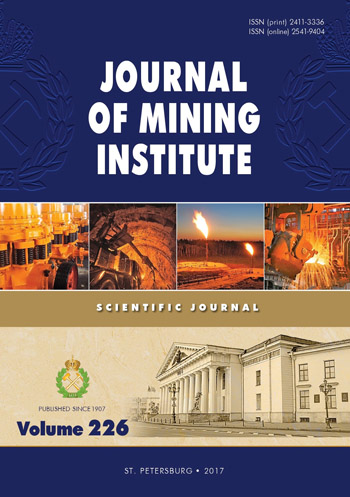Application of electronic learning tools for training of specialists in the field of information technologies for enterprises of mineral resources sector
- 1 — Ph.D. certified instructor of Cisco Networking Academy Saint-Petersburg Mining University
- 2 — Ph.D., Dr.Sci. PhD Engineer University of Economics
- 3 — Ph.D. Head of department, Head of Interdepartment Center of Modern IT «Cisco Networking Academy» Saint-Petersburg Mining University
Abstract
The article shows the advantages of using modern electronic learning tools in the training of specialists for the mineral and raw materials complex and considers the basic principles of organizing training using these tools. The experience of using electronic learning tools using foreign teaching materials and involving foreign professors is described. A special attention is given to the electronic learning environment of the Cisco Networking Academy – Cisco NetAcad. The experience of teaching at the Networking Academy of the Saint-Petersburg Mining University is described. Details are given to modern virtual environments for laboratory work, such as Cisco Packet Tracer, GNS3 and Emulated Virtual Environment. The experience of using electronic learning technologies at the University of Economics of Bratislava is considered. It actively cooperates with a number of universities of other countries, such as the University of International Business (Almaty), the Eurasian National University named after LN Gumilyov (Astana) and the Institute of Social and Humanitarian Knowledge (Kazan).
References
- Katuntsov E.V., Makhovikov A.B. NetAcad – e-learning system of the Cisco Networking Academy. Sbornik nauchnyh trudov III Mezhdunarodnoj nauchno-metodicheskoj konferencii «Sovremennye obrazovatel'nye tehnologii v prepodavanii estestvennonauchnyh i gumanitarnyh disciplin». Sankt-Peterburgskij gornyj universitet. St. Petersburg, 2016, p. 289-293 (in Russian).
- Katuntsov E.V. Comparison of virtual environments for laboratory work on network technologies. Sbornik nauchnyh trudov III Mezhdunarodnoj nauchno-metodicheskoj konferencii «Sovremennye obrazovatel'nye tehnologii v prepodavanii estestvennonauchnyh i gumanitarnyh disciplin». Sankt-Peterburgskij gornyj universitet. St. Petersburg, 2016, p. 284-289 (in Russian).
- Kultan J. The use of videoconferences in the organization of training in Russian at the Economic University in Bratislava. Modernizacija kazahstanskoj jekonomiki: aktual'nye problemy postkrizisnogo razvitija: Sbornik materialov XIV mezhdunarodnoj nauchno-prakticheskoj konferencii. Almaty: Universitet mezhdunarodnogo biznesa, 2010, p. 16-21 (in Russian).
- Makhovikov A.B. The use of Internet conferencing systems as a way to improve the efficiency of mining management. Zapiski Gornogo instituta. 2011. Vol. 191, p. 262-266 (in Russian).
- Makhovikov A.B., Stoljarov K.V., Strel'nikova A.V., Chernov M.A. Methods of solving some problems arising in the development of Internet conferencing systems. Zapiski Gornogo instituta. 2011. Vol. 193, p. 321-325 (in Russian).
- Alves G.R. Large and small scale networks of remote labs: a survey. Advances on Remote Laboratories and E-learning Experiences / University of Deusto. Bilbao, 2007, p. 15-34.
- Kultan J., Serik M., Alzhanov A. Information technology is an object, tool and tool of training. Information Technology Applications. 2012. Vol. 1, p. 55-69 (in Russian).
- Lustigová Z., Lusting F. A New Virtual and Remote Experimental Environment for Teaching and Learning Science. Berlin: Springer, 2009, p. 75-84.
- Makhovikov A., Makhovikova I. Use of Hidden Markov models for evaluation of Russian digits pronunciation by the foreigners. Lecture Notes in Computer Science (including subseries Lecture Notes in Artificial Intelligence and Lecture Notes in Bioinformatics). 1999. N 1692, p. 152-155.
- Ma J., Nickerson J.V., Hands-On, simulated, and remote laboratories: A comparative literature review. ACM Computing Surveys. 2006. Vol. 38. N 3, p. 1-24.
